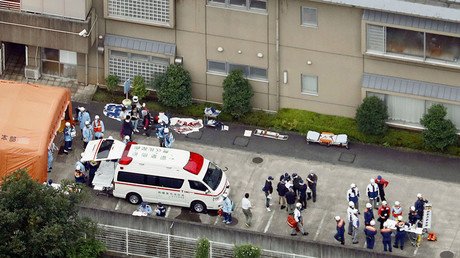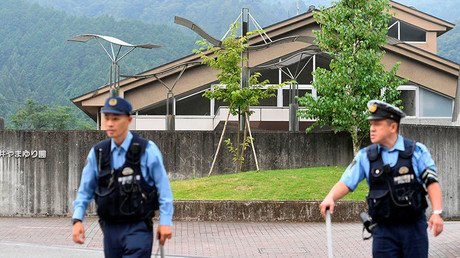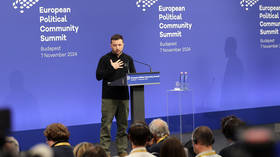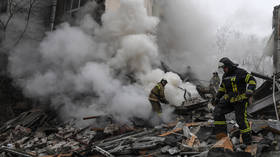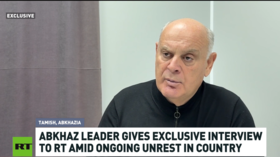‘Revitalize economy, prevent WWIII:’ Japanese mass murder suspect reveals motives in warning letter
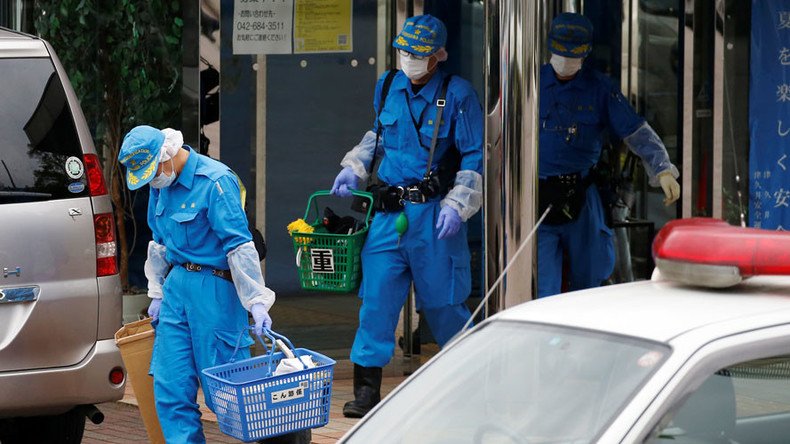
Knife attacker Satoshi Uematsu, who is suspected of killing at least 19 disabled people at a special facility near Tokyo, threatened to wipe out a total of 470 in letters he sent to a Japanese member of parliament some months prior to the mass killing.
Satoshi Uematsu promised to “obliterate 470 disabled people” in the letters he wrote in February and then attempted to pass to the speaker of Japan’s lower house of parliament.
“I am fully aware that my remark is eccentric. However, thinking about the tired faces of guardians, the dull eyes of caregivers working at the facility, I am not able to contain myself, and so I decided to take action today for the sake of Japan and the world,” he wrote, as quoted by AP.
“My reasoning is that I may be able to revitalize the world economy and I thought it may be possible to prevent World War III.”
“The act will be carried out speedily and definitely without harming the staff. After wiping out the 260 people in two facilities, I will turn myself in,” the letter goes on.
“My goal is a world in which the severely disabled can be euthanized, with their guardians’ consent, if they are unable to live at home and be active in society,” Uematsu wrote, apparently trying to explain his goal.
The letter had raised concerns and Uematsu was committed to hospital on February 19 for almost two weeks after local police contacted him. Lab tests showed that he had used marijuana and suffered from paranoia, NHK public TV reported.
He was discharged on March 2 because his doctors believed that his condition had improved, a local official told Reuters.
“This was not an impulsive crime ... He went in the dark of the night, opened one door at a time, and stabbed sleeping people one by one,” Yuji Kuroiwa, the governor of Kanagawa prefecture where the facility is located, said. “I just can’t believe the cruelty of this crime. We need to prevent this from ever happening again.”
Police have yet to officially comment on the motive behind the massacre. Uematsu was perceived as a decent and modest young man by his neighbors, who are now trying to put things together and get over the shock.
“It would be easier to understand if there had been a warning but there were no signs,” said Akihiro Hasegawa, 73, who described Uematsu as a polite man who always greeted him with a smile, Reuters reported. “We didn’t know the darkness of his heart,” he added.
“This is a peaceful, quiet town so I never thought such an incident would happen here,” said one of the residents who began gathering at the facility after the incident.
“That kind of person can’t defend themselves,” said another resident referring to those killed. “That’s why so many died. It makes you weep to think of somebody just murdering them.”
The killing spree took place at the Tsukui Yamayuri-En facility in Sagamihara town, about 25 miles (40km) southwest of Tokyo. The knife-wielding man killed 19 patients and injured 25.
By the time the attack had stopped, Uematsu reportedly posted a tweet that went: “I hope for world peace. Beautiful Japan!!!!!!”
Mass killings are very rare in Japan and most often involve knives or other types of cold weapons since the country has severe gun laws that restrict the public from possessing firearms.
